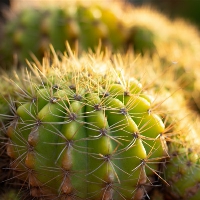When the company is vigorously developing its own economic capacity, it may have insufficient funds or even fund interruption. In order to continue the company's business, it will borrow money and repay it when it is due. What should be written in the accounting entry for the company's repayment of loans?
Accounting entries for repayment of borrowings
1. When borrowing:
Debit: bank deposit
Credit: other payables/short-term borrowings
2. When interest is accrued on schedule
Debit: financial expenses
Credit: interest payable
3. When paying interest:
Debit: interest payable
Credit: bank deposit
Taxes payable - individual income tax payable
4. When paying taxes:
Debit: tax payable - individual income tax payable
Credit: bank deposit
5. When returning the principal
Debit: other payables/short-term borrowings
Credit: bank deposit
How to understand financial expenses?
Financial expenses refer to the expenses incurred by an enterprise to raise funds for production and operation. It includes:
1. Interest expense refers to the net amount of interest expense (except capitalized interest) such as short-term loan interest, long-term loan interest, bill payable interest, bill discount interest, bond payable interest, and long-term payable interest on imported equipment minus interest income from bank deposits.
2. Exchange loss refers to the difference between the buying and selling prices of the bank and the exchange rate used for bookkeeping due to the settlement or purchase of foreign exchange from the bank, and the difference between the bookkeeping RMB amount and the original book RMB amount converted by the foreign currency ending balance of various foreign currency accounts at the end of each month (quarter, year) at the end of the period according to the specified exchange rate at the end of the period.
3. The relevant service charges refer to the service charges (excluding the service charges to be capitalized) to be paid for the issuance of bonds, the bank service charges for issuing bills of exchange, and the service charges for adjusting foreign exchange, but do not include the service charges paid for the issuance of stocks.
4. Other financial expenses, such as finance lease expenses incurred for fixed assets under finance lease.
How to handle the accounting entries for repayment of loans?
The accounting entries for loan repayment are as follows:
Debit: cash on hand
Administrative expenses/sales expenses?
Credit: other receivables - XX employees
The receipt can only be issued for 200 yuan, because the actual receipt is only 200 yuan.
The accounting entries of borrowings are as follows:
Debit: other receivables - XX employee
Credit: cash on hand
Extended data
In order to reflect and monitor the increase, decrease, and balance of other accounts receivable, an enterprise should set up an "other accounts receivable" account for accounting. The debit of the "other accounts receivable" account registers the increase of other accounts receivable, and the credit registers the recovery of other accounts receivable. The ending balance is generally in the debit, reflecting other accounts receivable that have not been recovered by the enterprise.
Account settings:
The "Other Receivables" account is used to account for various receivables and temporary payments of enterprises except bills receivable, accounts receivable, prepayments, etc. Under the account of "other receivables", it shall be classified according to the items of other receivables, and sub ledgers shall be set up according to different debtors.
Accounting entry when the company repays individual loans
When the company borrows from individuals, its principal is included in the current account, and the interest paid is included in the financial expenses. The accounting treatment is as follows:
1. When borrowing:
Debit: bank deposit
Credit: other payables/short-term borrowings
2. When accruing interest on schedule:
Debit: financial expenses
Credit: interest payable
3. When paying interest:
Debit: interest payable
Credit: bank deposit
Taxes payable - business tax payable (withholding) - individual income tax payable
4. When paying taxes:
Debit: tax payable - business tax payable (withholding) - individual income tax payable
Credit: bank deposit
5. When returning the principal
Debit: other payables/short-term borrowings
Credit: bank deposit
Extended data:
type
Accounting entries can be divided into simple entries and compound entries according to the number of accounts involved.
A simple entry refers to an accounting entry that only involves two accounts, that is, one debit and one credit;
A compound entry is an accounting entry involving two or more accounts
method
chromatography
Chromatography refers to a method to solve problems by dividing the development process of things into several stages and levels, and analyzing them step by step to get the final results. The teaching of preparing accounting entries by using chromatography is intuitive and clear, and can achieve ideal teaching results. The steps are as follows:
1. Analyze and list the accounts involved in economic transactions.
2. Analyze the nature of accounts, such as asset accounts and liability accounts.
3. Analyze the amount changes of each account.
4. Determine the direction of the account according to steps 2 and 3 in combination with the economic content (increase or decrease) reflected by the debit and credit of various accounts.
5. Prepare accounting entries according to the bookkeeping rule that where there is a debit, there must be a credit, and debit and credit must be equal.
This method is very effective for students to accurately know the accounting subjects involved in accounting business, and is more suitable for the preparation of individual accounting entries.

